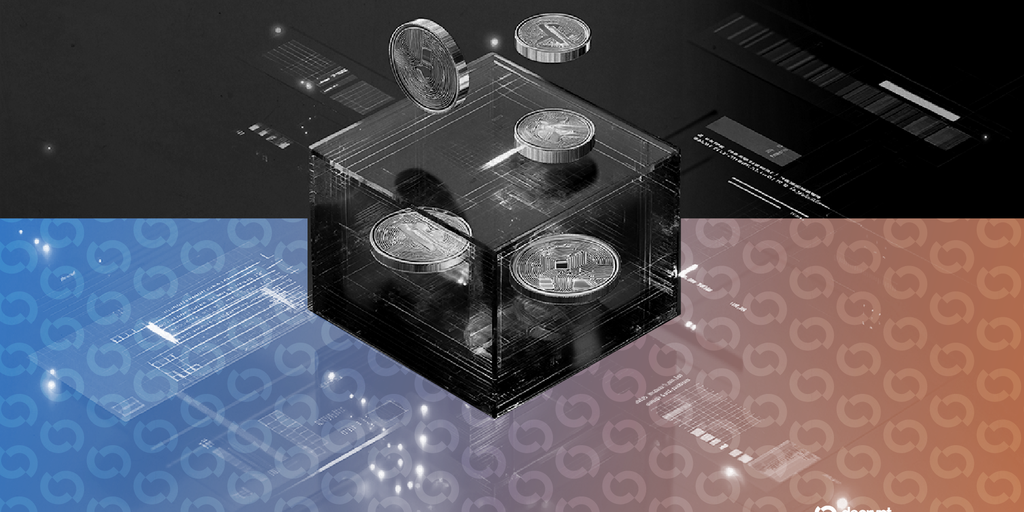In short
- Andreessen Horowitz has deposited another $ 70 million in Eigenlayer, which contributes to the previous investment of $ 100 million.
- EigenCloud enables developers to build verifiable web2 and AI applications.
- The platform will verify the prices for assets for, among others, BlackRock’s $ 2 billion Puidl Fund.
For years, Blockchain developers have confronted with a frustrating disability: their applications could only verify what happened on the blockchain itself.
All the other, from AI calculations to practice from practice, remained trapped in a trust vacuum. Now self -layer believes that it has cracked the code.
The Ethereum Resting Protocol announced on Tuesday that risk capital giant Andreessen Horowitz has invested another $ 70 million to launch EigenCloud, a platform that extends the verification possibilities from Blockchain to an application, whether or not off-chain.
“EigenCloud is changing that momentum into a united platform,” said own Labs CEO Sereeram Kannan Decrypt. “Anyone who builds on a blockchain can use verifiable applications without having to be a blockchain expert.”
One of the ways in which the EigenCloud platform does this is to help developers know “how correctness is enforced by programmable oblique region, adapted settlement modes and flexible selection of operators,” explains Kannan.
The investment of A16Z’s Crypto Fund IV follows the previous company $ 100 million series B round. With more than $ 12 billion in total value locked, Industrial Has become Ethereum’s largest repeated protocol since the Mavet launch launches two years ago.
The new platform deals with a fundamental limitation in blockchain development: the inability to verify complex off-chain calculations while retaining blockchain-level trust guarantees.
In the course of time, Eigenlayer sees the platform as something that could “transform the verifiability” into a programmable, economic primitive “that could operate” where trust and correctness make up the most, “said it in a statement.
Breaking barriers
EigenCloud introduces three core components: self -verification for dispute settlement, ownaa for data availability and self -computer for implementation.
The new components enable developers to build applications that treat tasks outside the blockchain while retaining cryptographic verification.
The platform works via the Eigenlaerer network of Autonomous verifiable services (AVSS), with more than 200 services that are currently live or in development.
AVSs are decentralized off-chain modules that use the shared, repeated Ethereum protection of Eigenlaerer to perform adapted, verifiable tasks, such as Oracles, bridges, layers for data availability and middleware.
These services use the protocol of approximately $ 12 billion in hersted assets to protect around $ 2 billion in application value.
Financial services Securitize plans to use the platform to verify the data from the prices of assets for BlackRock’s $ 2 billion Buidl Tokenized FondsMarking one of the first Enterprise implementations of EigenCloud.
Asked about reducing risks with AVSS, Kannan said of his own labs Decrypt That self -layer is “built with systemic resilience in mind”, while the oblique bumps as a “core enforcement mechanism acknowledges that stimulates truth economically.”
In this case, Kannan argues that the implementation of slashing is “isolated” for individual AVSs.
Slashing refers to the penalty mechanism where a part (or all) of the assets of a rest maker can be taken (cut) as the operator that they delegate for unfair or incorrect behaves while running an AVS.
Such events “do not run between AVSS or to the Ethereum base layer. This compartmentalization ensures that malfunctions are located and intensive, rather than systemic,” said Kannan.
“Echtlayer overcomes the technical bottlenecks of block chains to make a new category applications possible,” said Ali Yahya, who led the investment for A16Z.
The platform focuses on use cases on AI verification, prediction markets, medical data and traditional web services that require verifiable calculation.
By making off-chain calculation services possible, supported by the repeated mechanism of Eigenlaer, developers can build applications that were previously impossible within blockchain restrictions.
From Tuesday, developers have access to an Alpha version, with performance -Upgrades for Eigenendaa and limited access to Eigenverify Services.
Wide availability is planned for later this year, with extra dispute settlement modes and automated infrastructure management aids in development.
Edited by Sebastian Sinclair
Daily debrief Newsletter
Start every day with the top news stories at the moment, plus original functions, a podcast, videos and more.

